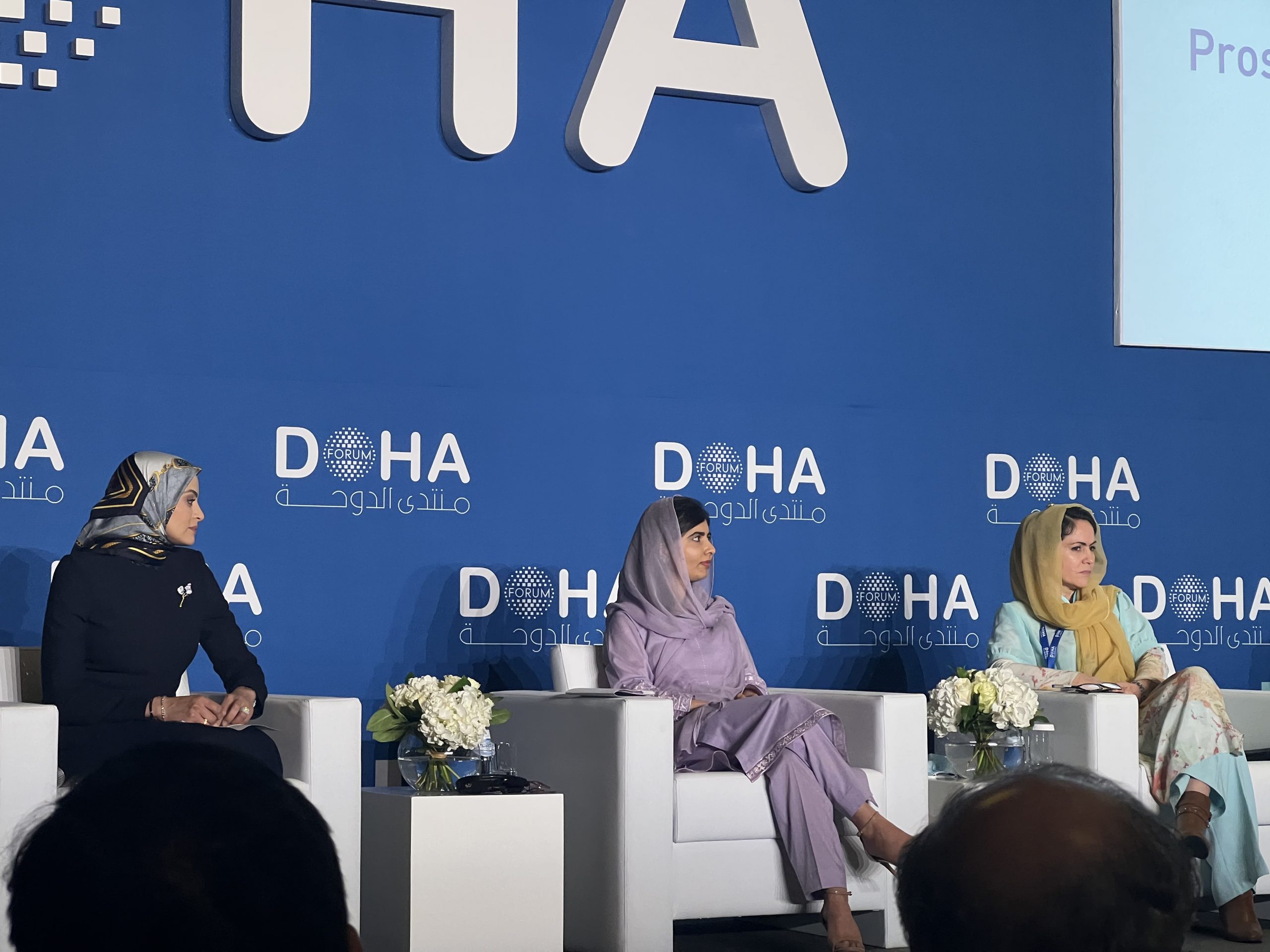“The only hope Afghanistan has right now is education,” Malala said during a Doha Forum panel.
Nobel peace laureate and activist Malala Yousafzai says a ban on girls going to school in Afghanistan “will not last forever.”
After putting their uniform on and heading to school, girls were stopped at the gate in Afghanistan on Wednesday. Shortly after the Taliban officially announced a ban on education for girls.
During a Doha Forum panel on ‘Prospects for Women and Girls in Afghanistan’ held in Qatar, the 24 year-old emphasised that now that Afghan women know what it feels like to be “empowered” and educated, it is hard to take that away from them.
They won’t back down, said Malala, who has dedicated her life to fighting for women’s basic right to education.
“I think it was much easier for the Taliban to implement a ban on girls’ education back in 1996,” Yousafzai told Doha Forum on Saturday.
“It is much harder this time, that is because women have seen what it means to be educated, what it means to be empowered. This time is going to be much harder for the Taliban to maintain the ban on girls’ education.”
The current acting Afghan government stopped girls from attending school during their previous rule in 1996, but the ban was later revoked after the US-led invasion of Afghanistan.
After they regained power last August the group promised education will continue for all, but girls were later stopped at the gates.
Prominent women were all gathered on the panel to discuss what the future of Afghanistan will look like if all the nation’s women had access to quality education, and what such a ban means to the region.
All panelists, including religious scholar Dr Omar Suleiman, Middle East Political Analyst Dalia Fahmy, right activist Fawzia Koof, and political leader Fatima Gailani all agreed that banning girls from attending schools in Afghanistan has no religious ground.
When asked about whether the Quran has any verse that bans women’s education, Dr. Suleiman answered with one word: no.
The scholar, however, highlighted that is important to focus not only on Afghani women but women globally who continue to face discrimination because of their faith and gender.
Meanwhile, Dalia Fahmy highlighted that it is not just about religious beliefs connected to education, but rather how men use the control of women to gain the upper hand.
https://mobile.twitter.com/DohaForum/status/1507738650905305089
“This is not just about education. It’s about women in public life and what it means for women to be in public life and how that challenges the status quo,” said Fahmy.
“So, if the state can tell women what they can and cannot do, what they can and cannot read, forcing them to burn books that they can’t move into the public sphere. Essentially, what they’re trying to do is say we are the father of the nation.”
Fawzia Koofi said banning girls from education is “basically a genocide of a generation.”
“How could anyone in this world in the 21st century ban girls from education? I don’t think the rest of the world, especially the Muslim world, should accept that,” she added.
As the Taliban continue to fight to get internationally recognised by the West, Yousafzai, a survivor of a Pakistani Taliban assassination attempt when she was 15, stated that a girl’s right to education should be a condition of diplomatic recognition for the Taliban.
“They shouldn’t be recognised if they don’t recognise the human rights of women she said.
Follow Doha News on Twitter, Instagram, Facebook and Youtube







